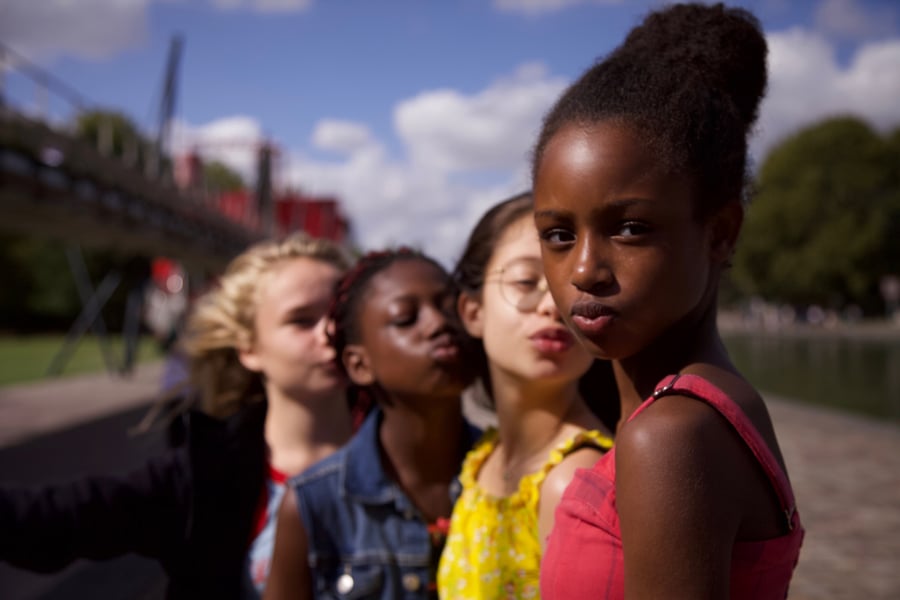Cuties director Maïmouna Doucouré defended her film, and reaffirmed her intent and the film’s meaning, in an op-ed for The Washington Post.
As Doucouré explains Cuties — originally released in France as Mignonnes —tells the story of an 11-year-old girl, Amy, who (like Doucouré), emigrated to France from Senegal. In the film, Amy joins a group of girls preparing for a local dance contest, for which they craft “increasingly risqué routines copying what they’ve seen” on social media.
“We, as adults, have not given children the tools to grow up healthy in our society,” Doucouré wrote. “I wanted to open people’s eyes to what’s truly happening in schools and on social media, forcing them to confront images of young girls made up, dressed up and dancing suggestively to imitate their favorite pop icon. I wanted adults to spend 96 minutes seeing the world through the eyes of an 11-year-old girl, as she lives 24 hours a day. These scenes can be hard to watch but are no less true as a result.”
Doucouré said the goal of the film was to start “a conversation about the sexualization of children,” adding, “The movie has certainly started a debate, though not the one that I intended.”
Though Doucouré did not get into the specifics of that debate, Cuties has become a focal point for factions on the far-right that believe a secret cabal of Hollywood liberals is operating a child sex trafficking ring, and that Cuties is further evidence of that. Even though the film attempts to address and critique the way young children are sexualized, it ended up being accused of sexualizing children. The furor even spread well beyond QAnon circles and reached the point where Senator Ted Cruz was calling for a Department of Justice investigation into the project. (An inappropriate and misleading poster Netflix released for the film didn’t help, either; the streaming service later apologized.)
In her op-ed, Doucouré explained how Cuties was inspired by countless conversations she had with young girls about how confusing puberty can be and the way social media can exacerbate the pressures they place on themselves. She also spoke about how the story is a reflection of her own experience, juggling the cultures of Senegal and France, and the way such scrutiny and judgement can effect girls.
“[T]hat’s why I made Cuties: to start a debate about the sexualization of children in society today so that maybe — just maybe — politicians, artists, parents and educators could work together to make a change that will benefit children for generations to come,” Doucouré said. “It’s my sincerest hope that this conversation doesn’t become so difficult that it too gets caught up in today’s ‘cancel culture.’”
Love Music?
Get your daily dose of everything happening in Australian/New Zealand music and globally.
From Rolling Stone US



































